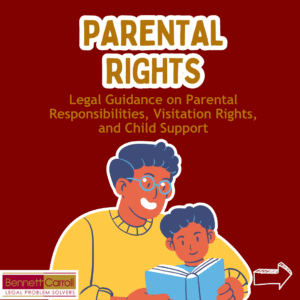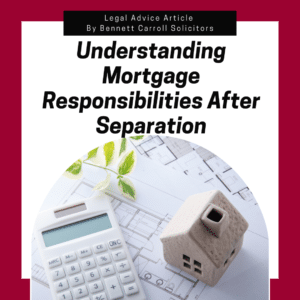Parental rights encompass a broad spectrum of responsibilities and entitlements that parents hold concerning their children. These rights are legally defined and play a crucial role in ensuring the well-being and upbringing of children following parental separation or divorce. Understanding parental responsibilities, visitation rights, and child support is essential for both parents to navigate this challenging terrain effectively.

Parental Responsibilities
Parental responsibilities refer to the duties and obligations that parents have towards their children, regardless of their relationship status. These responsibilities typically include:
- Providing Financial Support: Parents are obligated to provide financial support for their children, ensuring they have access to necessities such as food, clothing, housing, education, and healthcare.
- Ensuring Emotional and Physical Well-being: Parents must nurture and support their children’s emotional and physical well-being, providing love, care, and guidance to help them thrive.
- Making Decisions in the Child’s Best Interest: Parents are responsible for making decisions that serve the best interests of their children, including decisions related to education, healthcare, religion, and extracurricular activities.
- Fostering a Positive Relationship: Parents should encourage and facilitate a positive relationship between the child and the other parent, unless circumstances such as abuse or neglect warrant otherwise.

Visitation Rights
Visitation rights, also known as parenting time or access arrangements, refer to the right of a non-custodial parent to spend time with their child following separation or divorce. These arrangements are typically outlined in a parenting plan or court-ordered parenting orders and are based on the principle of promoting the child’s best interests.
Visitation rights aim to ensure that children maintain meaningful relationships with both parents, even if they no longer live together. The specifics of visitation arrangements can vary widely depending on the circumstances of the family, including the child’s age and needs, the parents’ schedules, and the nature of the relationship between the parents.

Child Support
Child support is financial assistance provided by one parent to the other to help cover the costs of raising a child. In Queensland, child support arrangements are governed by the Child Support (Assessment) Act 1989 and administered by the Department of Human Services.
The amount of child support payable is determined based on various factors, including each parent’s income, the cost of raising the child, and the amount of time the child spends with each parent. Child support payments are intended to ensure that both parents contribute financially to the child’s upbringing in a fair and equitable manner.
Parents can reach a private agreement on child support payments or opt for a formal assessment through the Department of Human Services. Regardless of the arrangement, both parents have a legal obligation to financially support their children, and failure to meet this obligation can have legal consequences.

Seeking Legal Advice
Navigating parental rights, visitation arrangements, and child support can be complex, particularly in the context of separation or divorce. Seeking legal advice from a family law professional is advisable to ensure that your rights and obligations are fully understood and protected.
Our family law solicitors can provide guidance on developing parenting plans, negotiating visitation arrangements, calculating child support payments, and resolving disputes that may arise between parents. With their expertise, you can navigate the challenges of co-parenting following separation or divorce while prioritizing the best interests of your children.

Conclusion
Parental rights encompass a range of responsibilities and entitlements aimed at promoting the well-being and upbringing of children. Understanding parental responsibilities, visitation rights, and child support is essential for parents navigating separation or divorce. By seeking legal advice and working collaboratively with the other parent, you can develop effective co-parenting arrangements that prioritize the best interests of your children and promote their healthy development.
Call us on or email and safeguard your interests every step of the way- We are your legal problem solvers.









